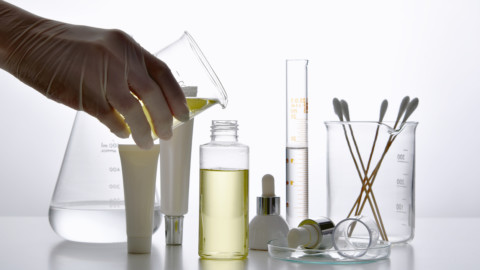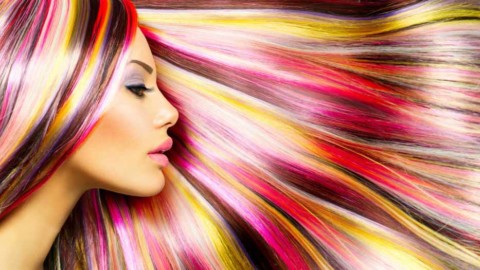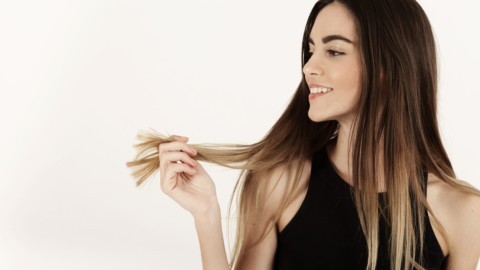Our bodies provide plenty of clues about our overall health. Changes in skin texture, fingernail coloring, and hair are sometimes signs that something is awry. I’ve often noticed that when I’m feeling tired and stressed, my skin tends to break out or look duller than usual. While I’m almost always shedding strands of my thick mane, I have also experienced abnormal hair loss in the past.
In some cases, hair loss can be attributed to vitamin and mineral deficiencies. A proper diet isn’t just good for your body, it helps keep your hair in tip-top shape, too. One of the signs of malnutrition, after all, is significant hair loss. When we fail to nourish our bodies correctly, the body may rebel in unpleasant ways. Unfortunately, it’s tough to diagnose deficiencies without a proper medical exam and subsequent blood tests.
Below you’ll find a few ways that your diet may impact your hair’s texture, growth rate, and appearance, but don’t assume that the information is enough to make a diagnosis. If you’re experiencing severe hair loss, consult a physician.
Iron Deficiency and Hair Loss
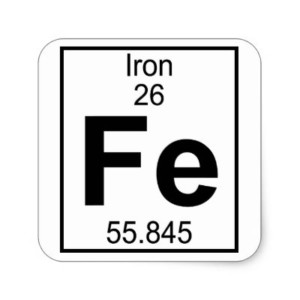 A severe lack of iron, referred to as anemia in the medical community, is a potential cause for hair loss. However, the problem isn’t always a result of improper nutrition. Some people aren’t able to absorb iron as well as others, which then leads to a deficiency.
A severe lack of iron, referred to as anemia in the medical community, is a potential cause for hair loss. However, the problem isn’t always a result of improper nutrition. Some people aren’t able to absorb iron as well as others, which then leads to a deficiency.
A significant dietary lack of any macronutrient — fat, carbs, protein — may lead to hair loss. In fact, incorporating a significant calorie deficit into your diet will likely result in abnormal shedding. It’s a sign that you’re not getting enough nutrients. A severely restrictive diet is not healthy for your body or your hair.
Don’t pop the top of that iron supplement bottle just yet, though. Consult a doctor to find out whether you’re genuinely anemic and hopefully figure out the source. Carefully auditing your diet may be all that’s required unless your body isn’t properly absorbing the iron that you consume.
Dietary sources of iron: legumes, leafy greens (kale, spinach), lean meats
Lack of Zinc and Brittle Hair
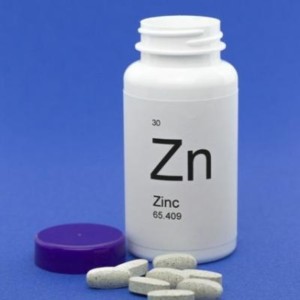 Zinc is an essential mineral, and a deficiency may lead to brittle, easily damaged hair. A lack of this mineral is often due to gut diseases that prevent proper absorption. If you’re vegetarian or vegan, getting enough zinc in your diet may be tough, since the mineral’s bioavailability isn’t as high in vegetables as it is in meat. In most cases, hair loss and damage is reversible with proper supplementation. Adding zinc to your diet, however, if you’re already getting enough of it, won’t help hair grow or thicken. Zinc also becomes toxic in high doses, so don’t grab it in supplement form unless you’ve got a prescription from your doctor.
Zinc is an essential mineral, and a deficiency may lead to brittle, easily damaged hair. A lack of this mineral is often due to gut diseases that prevent proper absorption. If you’re vegetarian or vegan, getting enough zinc in your diet may be tough, since the mineral’s bioavailability isn’t as high in vegetables as it is in meat. In most cases, hair loss and damage is reversible with proper supplementation. Adding zinc to your diet, however, if you’re already getting enough of it, won’t help hair grow or thicken. Zinc also becomes toxic in high doses, so don’t grab it in supplement form unless you’ve got a prescription from your doctor.
Dietary sources of zinc: Meat, legumes, shellfish, nuts, and seeds
Omega-6 Fatty Acids and Hair Growth
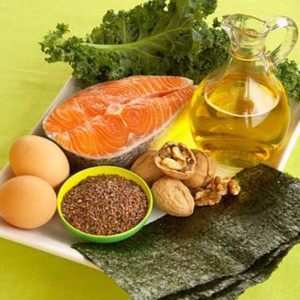
We’ve talked plenty about hair loss, but are there ways in which diet can positively impact hair growth? According to a 2017 study, there’s some evidence that consuming arachidonic acid (a type of omega-6 fatty acid) may possibly increase the growth rate of hair. However, the evidence linking supplementation to hair growth is slim. You’re better off getting omega-6 through a varied diet.
Dietary sources of omega-6 fatty acids: chicken and other poultry, eggs, vegetable oils, nuts
Selenium and Hair Loss
This is a weird one. Evidence links over-consumption of selenium to hair loss. The same is true for over-supplementation with Vitamin A. Oddly enough, many popular hair vitamins, gummies, and supplements actually contain hefty amounts of both elements. It might be worth taking a closer look at your ‘shiny hair’ vitamin bottle’s list of ingredients.
Dietary sources of selenium: Seafood, mushrooms, lean meats, beans
Don’t Waste Your Money on Biotin Supplements
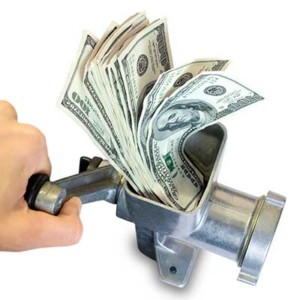
I actually used to take biotin supplements a few years back. I was experiencing abnormal hair loss after taking a particular medication, and in a panic, I took to Amazon to order a product that might halt the shedding in its tracks.
It turns out that it’s incredibly hard to miss out on biotin in your diet. It’s abundant in many foods. Unless a person has a specific disease that causes such a deficiency, there’s plenty of bioavailable biotin up for grabs. There’s also no evidence that biotin has any effect on preventing or stopping hair loss. I quickly realized this to be true at the time and stopped taking the supplements and quit the offending medication.
One 2016 study even suggests that taking oral biotin supplements is pretty much useless and that finding the root cause of the hair loss is more important than supplementation with biotin.
Dietary sources of biotin: Dairy, sweet potato, avocado, meat (particularly the liver of animals), egg yolks
Non-Diet Hair Loss Triggers
Of course, diet isn’t the only reason your hair might fall out or change. Chemotherapy treatments cause hair loss and aging affects hair texture and appearance. As we get older, strands lose their color and hair thins out.
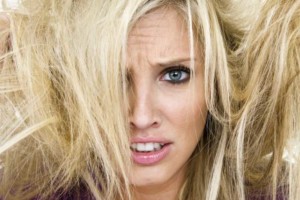
Hair loss may also be due to a number of medical conditions including thyroid problems and gastrointestinal disorders. Other genetic conditions and illnesses may also prevent uptake of certain vitamins and minerals causing deficiencies that may potentially lead to hair loss. And, of course, as I previously mentioned, medications may have side effects that include excess shedding. Not everyone will respond the same way to different medications, but if you’re worried about hair loss as a side effect talk to your doctor. It may be possible to change dosage and reduce the shedding.
There’s no question that your diet and hair condition are inextricably linked. Severe hair loss is an incredibly stressful occurrence. While you can gulp down hair vitamins and hope for the best, it’s a good idea to speak to your doctor if you’re noticing a sudden change in the texture and thickness of your hair. Tackling the root cause is always better than playing a guessing game.
Diseases that may cause hair loss
- POS – polycystic ovarian syndrome
- Hypothyroidism
- Syphilis
- Addison’s Disease
Medications that may cause hair loss
- Beta-blockers
- Anticonvulsants
- Blood thinners
- Birth control pills
Does Stress Cause Hair Loss?
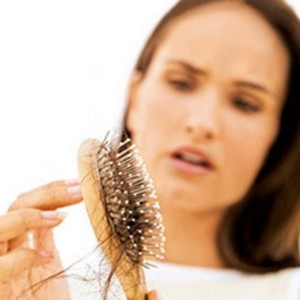
Periods of trauma or high-stress are likely to lead to hair loss, right? Not exactly. While physically stressful life events like surgery may lead to significant hair loss several months after the fact, regular life stress isn’t a trigger. There’s very little evidence to suggest that normal everyday stress causes excess shedding.
Is Some Shedding Normal?
Of course! We shed hair on a daily basis. Everyone regularly loses strands of hair. Abnormal hair loss will be noticeable because you’ll see more hair circling the drain of your shower or tub, and you’ll potentially notice thinning around your scalp.
As we age, some hair thinning is to be expected. Take a look at the hairlines of your family members. Age-related hair loss is genetic, so if your relatives have less hair than they used to, it’s likely that you’ll experience thinning, too, as you grow older.
If you’re noticing a higher volume of hair at your feet while showering, though, don’t hesitate to have a chat with your physician.


